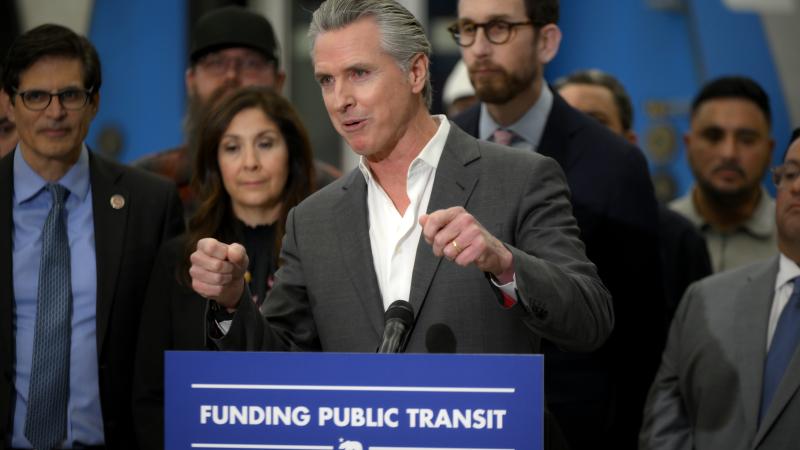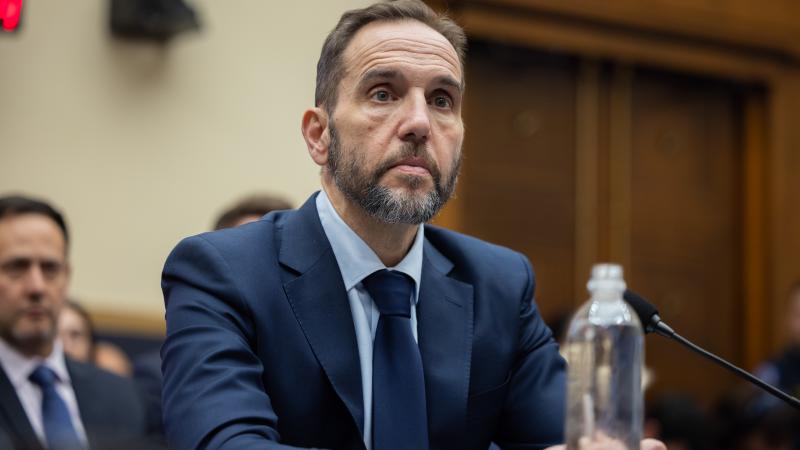Trucking industry faces showdown with Democrats over push to eliminate diesel rigs, go electric
The EPA recently proposed new tailpipe emissions goals that could require up to two-thirds of new cars sold in the U.S. by 2032 be battery-powered electric vehicles.
Powered by small business owners and union workers alike, the trucking industry is on a collision course with the Democrat Party over federal and local efforts to phase out diesel rigs and push the shipping industry to electric vehicles.
The latest strike came a few weeks ago when the U.S. Environmental Protection Agency proposed new tailpipe emissions goals that could require up to two-thirds of new vehciles sold in the U.S. by 2032 to be battery-powered electric vehicles.
A top executive of one of the country’s largest trucking companies declared Tuesday that EPA's proposed new regulations on carbon emission are impractical, excessively expensive and could have a profound negative effect on the industry that moves most of America's supply chain across highways.
"These regulations are not practical for four reasons: costs, infrastructure, testing and data, and driving range," Mike Kucharski, a vice president of Chicago-based JKC Trucking Inc., told the "Just the News, No Noise" TV show.
He said a new, long-haul tractor typically costs $100,000 to $200,000, while a comparable electric tractor costs at least $480,000.
"That's a $300,000 up-charge in costs, prohibitive for the overwhelming majority of carriers," Kucharski said.
His company is one of the country's largest refrigerated-trucking operations and specializes in moving temperature-sensitive freight such as fresh produce, meat and dairy products.
Kucharski says a lot of truckers support the transition away from gas-powered vehicles but don't think the U.S power grid power grid is ready for a majority electric fleet.
"Most truckers support green energy but they would say the infrastructure and the power grid is not ready," he said. "There's not enough charging stations."
While the EPA changes are still in the proposal stage, California regulators last month voted to ban the sale of new diesel big rigs by 2036 and require all trucks to be zero-emissions by 2042.
"How's California gonna produce enough power to charge all these trucks?" Kucharski asked. "Last time I checked, California had the two hottest summers on record. And I'm not saying don't plug in your electric cars in the summertime, but how are we going to charge these trucks?"
Another prominent voice in the trucking industry, Todd Spencer, president of the Owner-Operator Independent Drivers Association, accused the Biden administration of acting hypocritical by promoting EPA rules while mandating changes to achieve environmental goals.
"The other thing that is extremely frustrating is that when we talk about these things, we hear this word mandate," Spencer told Fox News Digital.
"They tell us all the benefits, how great this stuff is going to be," he continued. "And then they say, 'You gotta do it anyway.' Realistically, we're more in tuned to incentives. If you're talking about something that actually really does deliver benefits for all around, you don't have to mandate stuff like that. People gravitate to it."
















